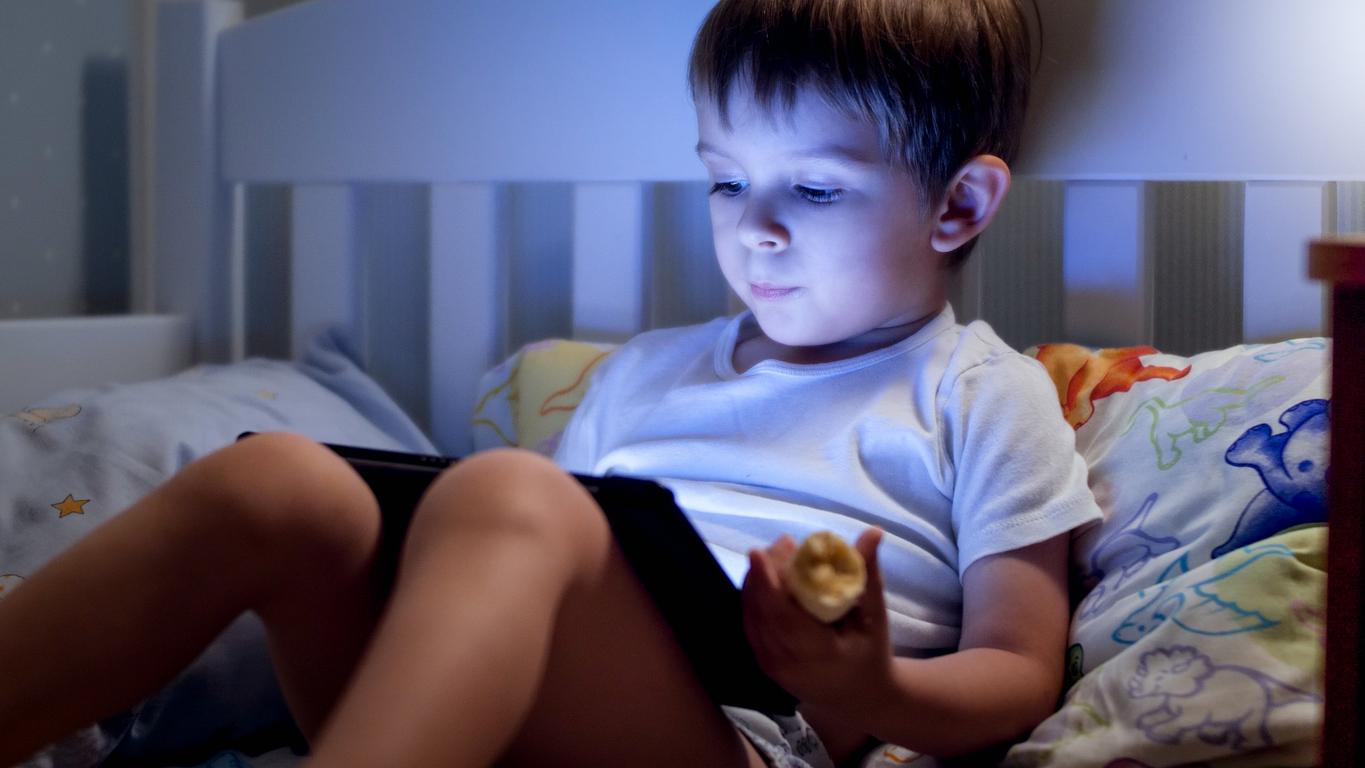In France, prevention messages on the dangers of screens will be included in children’s health records from January 1, 2025. A recent study confirms that excessive screen time among children under 6 years old can reduce quality of sleep, and by domino effect have repercussions on their behavior by exacerbating problems with attention, mood and hyperactivity.

- Excessive screen time in preschool children is linked to poor sleep.
- It is also linked to an increase in behavioral problems in children, particularly due to poor quality sleep.
- The researchers add that controlling screen use in preschoolers may help alleviate behavioral problems and sleep disturbances.
Tablets, game consoles, smartphones… many screens were happily discovered at the foot of the tree. However, be careful with little ones. Researchers from Carleton University (Canada) and Shanghai Normal University made a worrying discovery: “Our findings indicate that excessive screen time can leave preschoolers’ brains in a state of arousal, leading to poor sleep quality and duration.”explains Professor Yan Li, head of the study. And it is not without consequences.
Screen and children: a domino effect on sleep and behavior
To assess the effect of screen time on children, researchers surveyed the mothers of 571 children aged 3 to 6 years old. They had to indicate the time that their offspring had spent in front of screens (television, smartphones, computers, tablets, etc.) each day during the previous week. The mothers also answered a behavioral questionnaire: attention difficulties, hyperactivity, discomfort or even peer problems such as loneliness or the preference to play alone. They also had to answer questions about the quality and duration of the child’s sleep.
Bottom line: Excessive screen time among preschoolers is “significantly” correlated with a reduction in sleep quality. “This poor sleep may be due to delayed bedtimes caused by screen viewing and disruption of sleep patterns from overstimulation and exposure to blue light. Screen use could also displace time that could have been spent sleeping and increase levels of physiological and psychological arousal, leading to difficulty falling asleep.”explains lead author Shujin Zhou in a press release.
Furthermore, time spent on screens and the resulting poor quality of sleep were also linked to an increase in behavioral problems (hyperactivity, unstable mood, inattention, etc.).
“Our findings suggest the presence of a positive feedback loop, in which increased screen time and sleep disturbances mutually exacerbate each other through cyclical reinforcement, increasing the risk of sleep problems. hyperactive attention, anxiety and depression”adds co-author Dr Bowen Xiao.

Avoiding screens to reduce behavioral problems
For the authors of the article published in the journal Early Child Development and Caretheir work shows that we must exercise caution and control in the face of the growing presence of screens in the daily lives of toddlers.
“The implications of our study are two-fold: first, controlling screen use in preschoolers may help alleviate behavioral problems and poor sleep quality, and second, interventions and Sleep treatments may be effective in mitigating the harmful effects of screen time on behavioral problems.concludes Dr. Zhou.
Prevention messages in the 2025 children’s health record
In the past, several experts have already warned against the excessive use of screens among children. In France, the High Council for Public Health estimates that before “At the age of 3, screens should be avoided if the conditions for parental interaction are not met”. And changes to the child’s health record from January 1 will include prevention messages on the use of screens, messages aimed at children from 3 years old and up to adolescence.
For the WHO, there should be no screen for two years. From this age and up to 5 years, one hour in front of the screen should be a maximum, and “less is more”.















